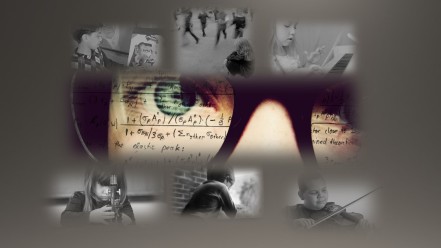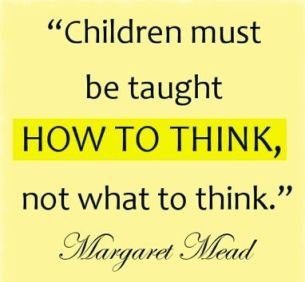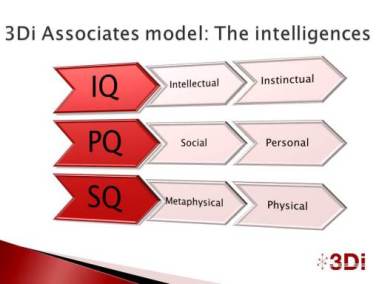An interesting item about “gifted” children on BBC Woman’s Hour caught our attention this week:
http://www.bbc.co.uk/programmes/p058gr3d
Tina Crawford spoke about her experiences as a parent of a child with a high IQ, who was experiencing unhappiness at school. Very academically able, a little unstimulated by the curriculum, his main problem was his ability to socialise with peers. He felt he didn’t “fit in”.
Accompanying Tina on the programme was Julie Taplin, the Deputy CEO of Potential Plus UK – a charity that supports children with “high learning potential” and also supports and advises their families.
https://www.potentialplusuk.org/
Potential Plus assesses the whole child – not just the ability to read, write and achieve well academically. It uses verbal and non-verbal tests as indicators, not as labels, and concentrates on a full profiling of the child – to establish all of the child’s strengths, including social skills. As Julie said, they are trying to measure something that is unmeasurable. Often high-functioning children will not be able to demonstrate their innate thinking ability in written form.
And every child is different.
What she also said about the internationally accepted definition of “gifted” was also very telling. In the UK, the criteria for being categorised as “gifted” is being in the top 10% for academic attainment. She implied other countries have wider interpretations of “gifted”.
It’s an indictment on our own Department of Education that it should think of giftedness in such narrow terms – with a knock-on implication for the young people and the schools which are supposed to serve their needs.
Tina discussed the problems of making sure her child, Toby, was happy. After all, isn’t this the fundamental desire of parents – that their children are happy in themselves, secure and confident, and able to enjoy their childhood?
Tina said, “If he was happy we wouldn’t have done anything.”
Tina’s priority wasn’t a baseline assessment. She wasn’t thinking about attainment levels or whether Toby would fulfil his ambition to become a theoretical astrophysicist. She just wanted him to be happy – and he wasn’t.
The solutions for Toby were either to be home-schooled (which we assume Tina dismissed due to his need to socialise with other children) or to pay for an alternative education – something she felt she couldn’t afford to do. The outcome for Toby is that he’s now at a prep school, one that isn’t excessively focused on academic learning, since this isn’t what he needs. He attends a school that provides a broad and balanced range of activities including music and art.
The presenters reiterated the point that there’s a huge difference between children like Toby – who have exceptionally high intellectual abilities (high IQ) – and high attainers. An extremely high-functioning cognitive ability doesn’t necessarily equate to success in exams. In some cases the “gifted” brain doesn’t cope with the requirements for passing exams, i.e. hours spent memorising abstract information and going through relentless practice tests. High order imaginative thinking, problem solving and creative expression aren’t measured by timed tests and exams.
For us, this simply reaffirms our view and our model of multiple intelligences. An excessive focus on one type of intelligence and a lack of focus on other sorts of intelligence – social, personal, physical, spiritual, instinctual – isn’t a positive thing.
(Please note, we’re not saying that all gifted children or all children with outstanding intellectual capabilities have a deficit in those other intelligences. We’re commenting here on the lack of provision in many schools for the development of every type of intelligence, particularly the personal, social and emotional.)
And our system doesn’t necessarily cater well for high intellectual development. It simply sets out to “drive up standards” – i.e. improve scores in timed tests and exams – thus letting down far too many children, young people and their families.
A curriculum that caters only for this one aspect of intellect rather than developing all of the intelligences is failing all of our young people, not just the gifted.
We need to encourage the development of all our intelligences, both in school and at home.
We strongly recommend parents and others interested in education to read this short article:
http://loudounnow.comWe/2017/03/23/croll-the-truth-about-gifted-versus-high-achieving-students/
“Which of the following do you believe to be true?
a) Gifted children usually get straight A’s in school
b) Gifted children are often teacher’s pets in the classroom
c) Gifted children have exceptional executive function (organisation, time management, etc.) skills
d) Gifted children tend to be natural leaders
e) None of the aboveThe answer is, of course, e. The statements above describe high-achieving students, not gifted ones. This is a distinction parents of gifted children would like others to understand.”
The author concludes her excellent piece by saying,
“Having your child identified as “gifted” at school is no better or worse than having them qualify for any other academic support service. Parents who pay for tutoring services to teach their child how to “act more gifted” so they “get into” gifted programs at school would be wise to spend those dollars instead on enrichment classes to help their children become high achievers.”
All-round achievement is what is needed, and a balanced education, through the enrichment of every type of intelligence. The wellbeing of children is not best served by an unbalanced education that puts excessive emphasis on academic attainment.
………………………………………
A footnote:
We’d like to see more use of the word “intellect” where the word “intelligence” is generally used. Too often people say “intelligence” when what is referred to is just one type of intelligence. This may seem pedantic but there’s a big difference between being emotionally intelligent and being academically able – and both are “intelligent”. There’s also a difference between being academically able and intellectually capable – between high-order thinking and an ability to pass exams; both referred to as “intelligence”.
In order to help these young people, we need to be more precise with our terminology.
………………………………….
See also;
http://crushingtallpoppies.com/2016/06/06/9-things-the-world-must-understand-about-gifted-children/
From our archive:
https://3diassociates.wordpress.com/2015/07/09/ofsted-and-personal-development-judgement/
https://3diassociates.wordpress.com/2012/12/14/descriptions-of-fully-evolved-humans-part-one/
https://3diassociates.wordpress.com/2012/12/15/descriptions-of-fully-evolved-humans-part-two/
https://3diassociates.wordpress.com/2012/12/16/descriptions-of-fully-evolved-humans-part-three/
https://3diassociates.wordpress.com/2012/11/18/schools-of-the-future-and-the-present/
https://3diassociates.wordpress.com/2014/07/08/wellbeing-at-wellingtonwhere-else/





